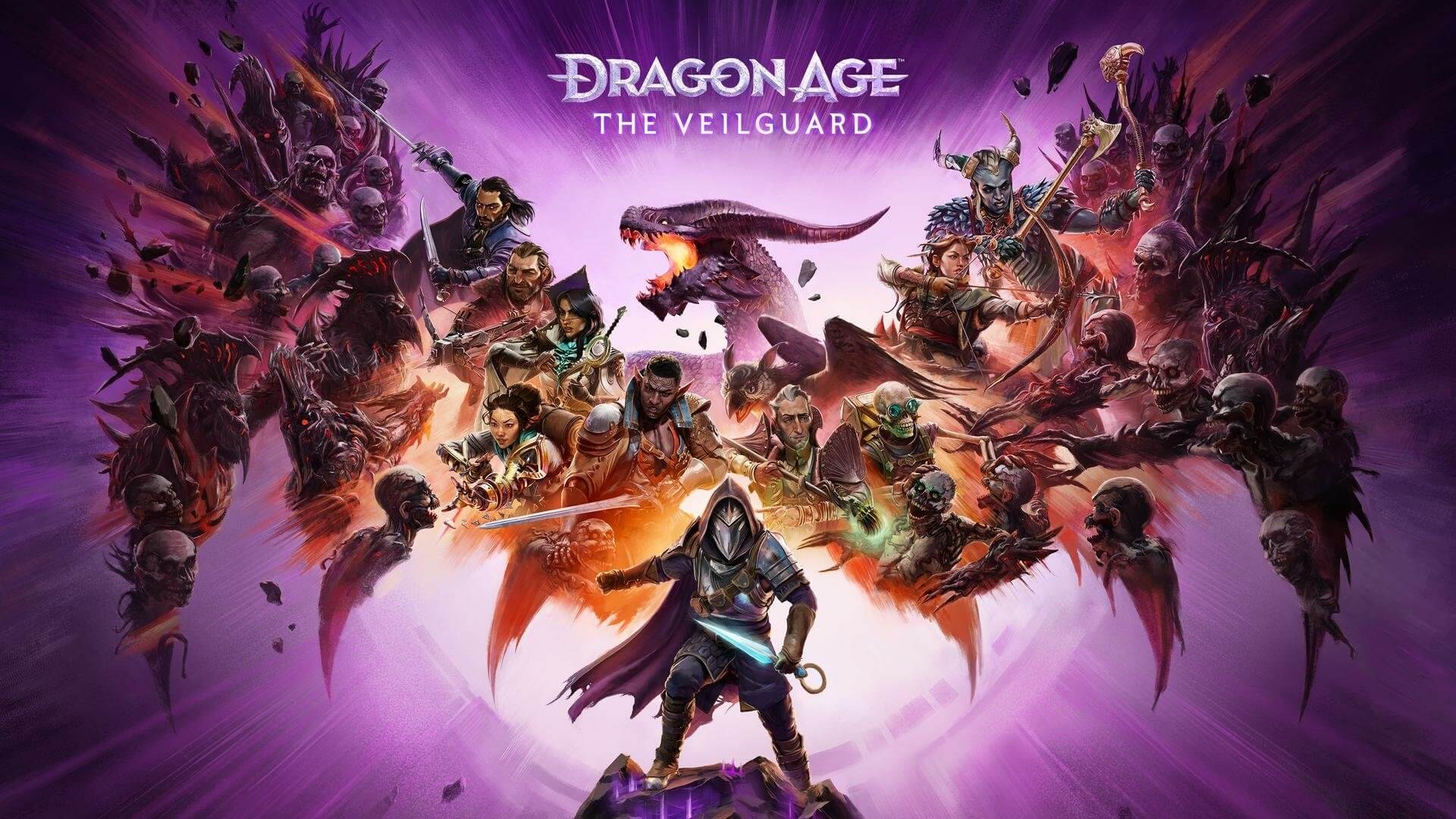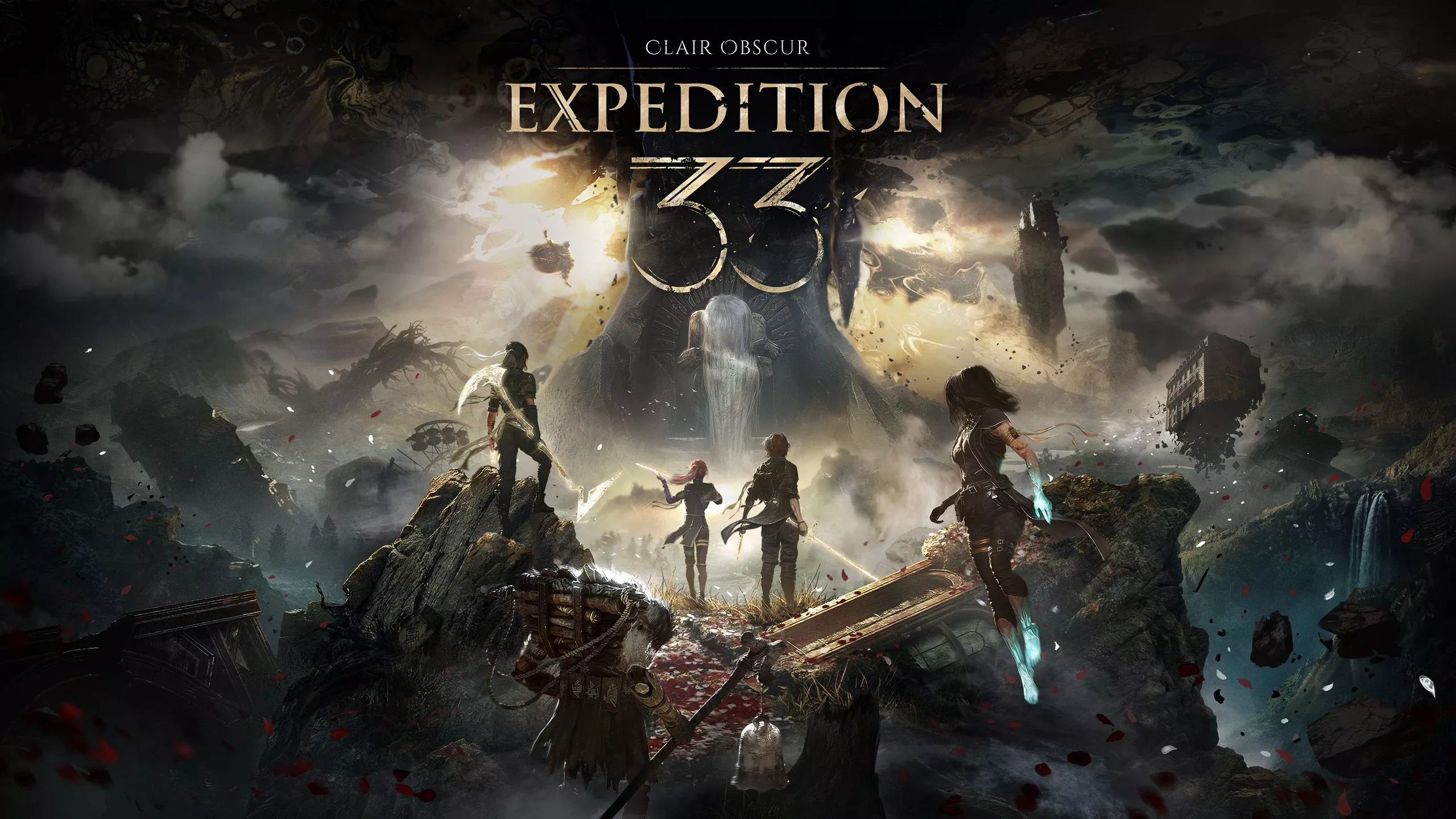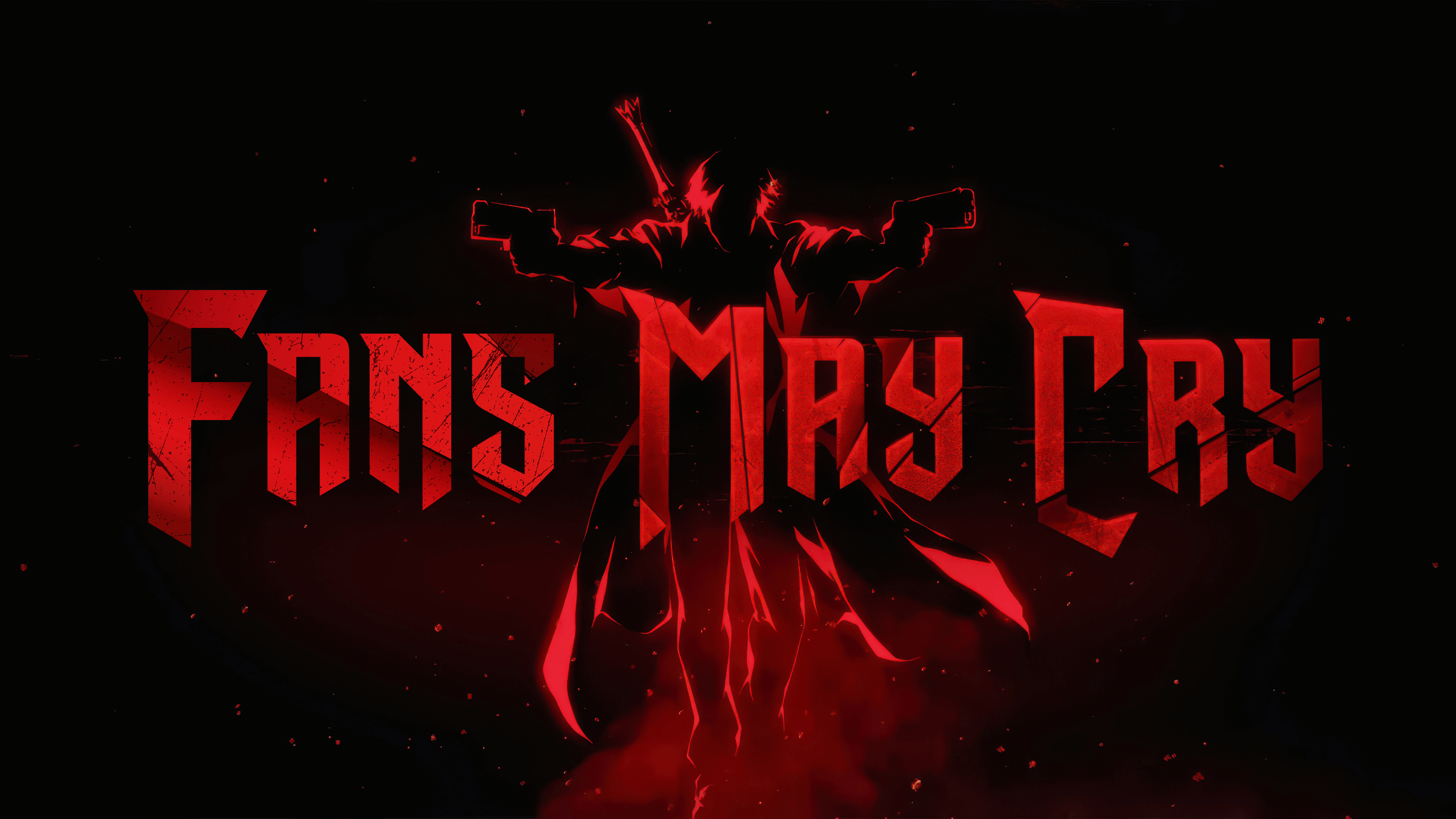Dragon Age: The Veilguard launched on October 31, and has been out for 3 full days as of the time of writing this article. A fourth installment in a high fantasy IP developed by BioWare and published by EA, dating back as far as 2009 (as a matter of fact, Dragon Age: Origins is 15 years old today, happy birthday!). For many, including myself, Origins has set the bar for what an RPG game is, and is generally regarded as one of the best video games of all time. And while the series has seen its ups and downs over the years, this is not a review of the Dragon Age franchise.
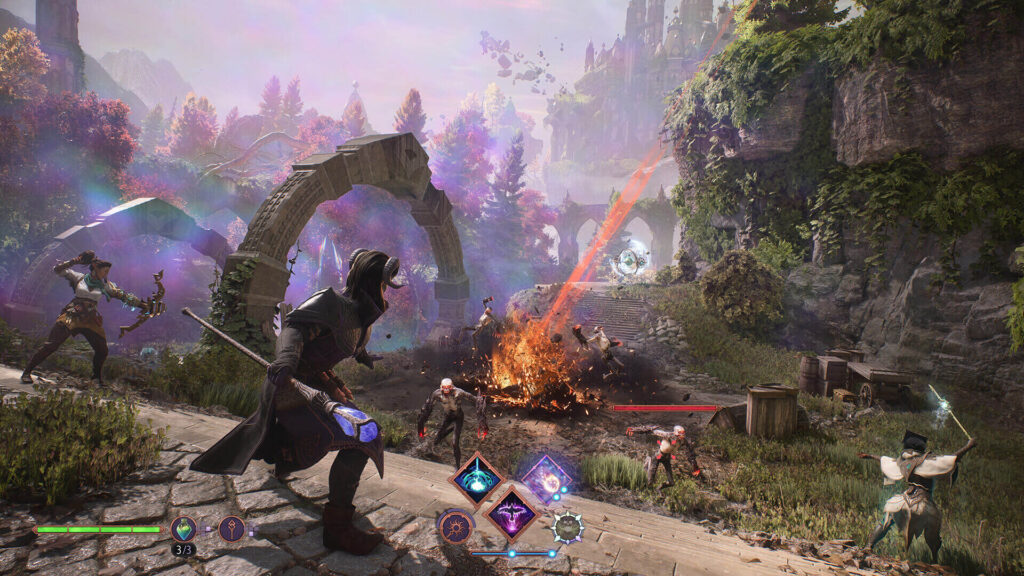
The development of The Veilguard did not go without troubles either. With work beginning at 2015, according to sources, the path to release was not easy for BioWare. The game had been put back on the shelf multiple times, getting cancelled by EA, later revived, renamed, team members moved around and overall seeming like the project is not in a very good place. The first showcase of the game was met with mixed reception, gamers claiming that the art style that has changed from the earlier entries in the series, the way companions were introduced seemed out of place for the genre, as well as the overall feel of the game seemingly trying to appeal to a different, much younger audience than the fans of the original series, “goofy” visual style and uninspired writing. Others claimed the game was pushing an agenda based on gender ideology, or getting political in places it didn’t need to be.
Regardless of everything, the game was still very anticipated. Dragon Age is a franchise beloved by many, keeping hope in their heart that BioWare would deliver. Closed hands-on previews reception was overall positive with occasional pointers by the testers of what can be better.
So, what happened to the Reviews?
It is without doubt that pre-release previews play an important role in video game sales. Players are desperately looking for a green light to open their wallets and get the brand new game they’ve been waiting for. For many, the pressure of starting to play on release day is great, and reasons may wary:
- Some look to avoid story spoilers
- For some, experiencing the game together with friends is important
- Some are looking to get an early edge on others
- For many adults missing a game release on a weekend means waiting a week or more for the opportunity to have free time for their hobby again.
As for The Veilguard reviews, a popular outlet Fextralife has pointed out shortly after other outlets started to receive their review keys, that he seemingly was denied the opportunity to review the game, claiming his criticisms of the closed hands-on preview, however minor, has closed his opportunity with BioWare/EA, pointing to the fact that pre-release reviewers are likely hand-picked for the purposes of having more favorable scores. Fextralife video attached below for those who would like to inform themselves:
Credit for the video goes fully to Fextralife. Go watch it!
About those hand-picked reviews...
Fextralife’s fears regarding the integrity of the reviews for the seem to be proven right. Shortly after pre-release reviews from the popular outlets many gamers pointed out that many of the reviews seem to be following a script, with phrases like “return to form” becoming a quickly spreading meme ridiculing a possible lack of integrity from the biggest gaming review outlets.
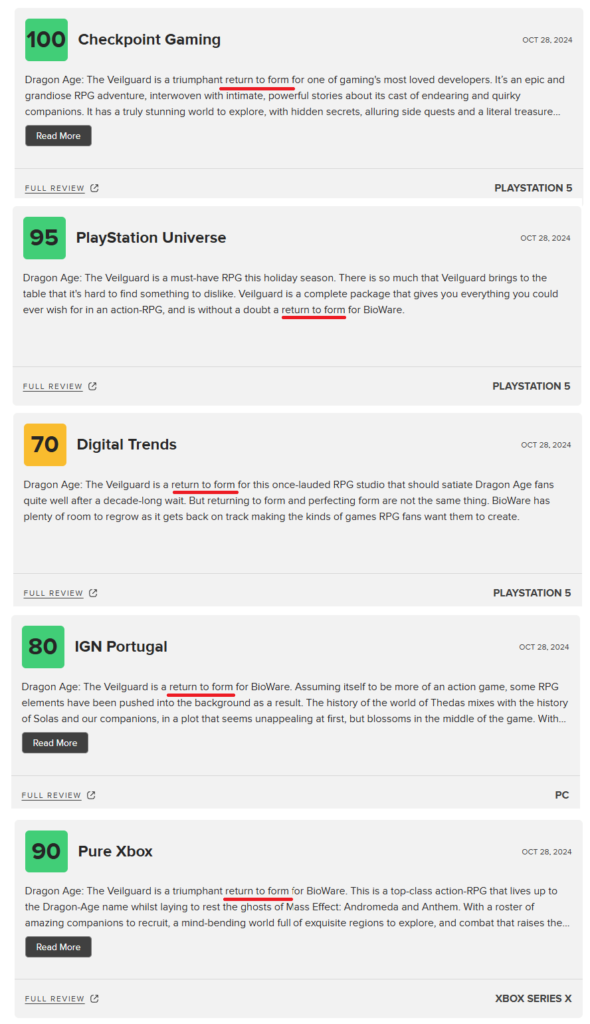
What happened on release day?
Without unbiased reviews for The Veilguard, proceeded to buy the game straight on release day, and while the exact sales numbers are unknown, The Veilguard peaked at 70,414 players on Steam or release day. (Source: SteamDB)
While this number itself is nothing to scoff at, and since then was regarded as a great success by BioWare, it is definitely on the low side of what is expected from a high budget AAA RPG nowadays. For reference similar games have shown much better numbers on release dates lately:
- Dragon’s Dogma 2: 228,585 players
- Baldur’s Gate 3: 875,343 players
- Elden Ring: 953,426 players
Source: SteamDB
Metacritic's role in the story
Metacritic is a review outlet widely known and used in the industry to rate videogames as well as get information on the rating of a game you’re interested in buying. However, on release day of Dragon Age: The Veilguard something rather weird (and convenient) happened. While the Critics Score for the game proudly stood at “Generally Favorable” 84/100 points (with many reviews stating BioWare’s “return to form”), User Reviews were absent for more than 24 hours since release, claiming “at least 4 reviews are needed to to rate this product”. And while its technically possible that no 4 players out of the hundreds of thousands playing didn’t bother to rate the game on a very popular and widely used website, I highly doubt that. More likely the user reviews were suppressed to boost day 1 sales, arguably the most important day of the game life cycle.
Update: the user reviews on Metacritic are present, standing at high contrast to critic reviews, scoring “Generally Unfavorable” at 3.9/10 though I’ve seen screenshots of the score being as long as 1.9/10.
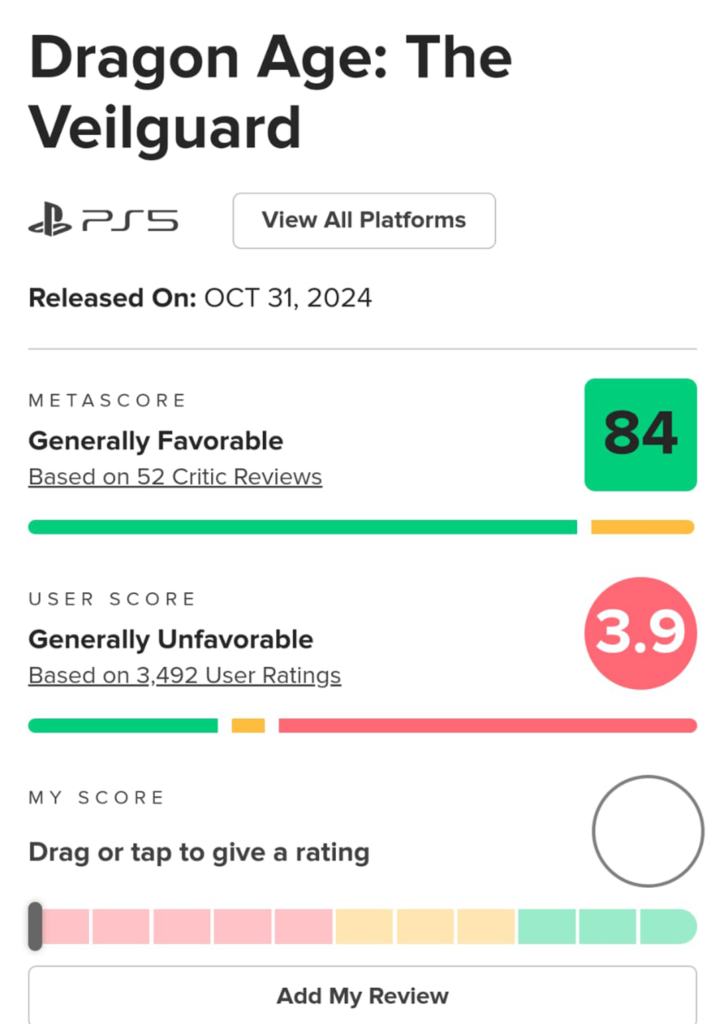
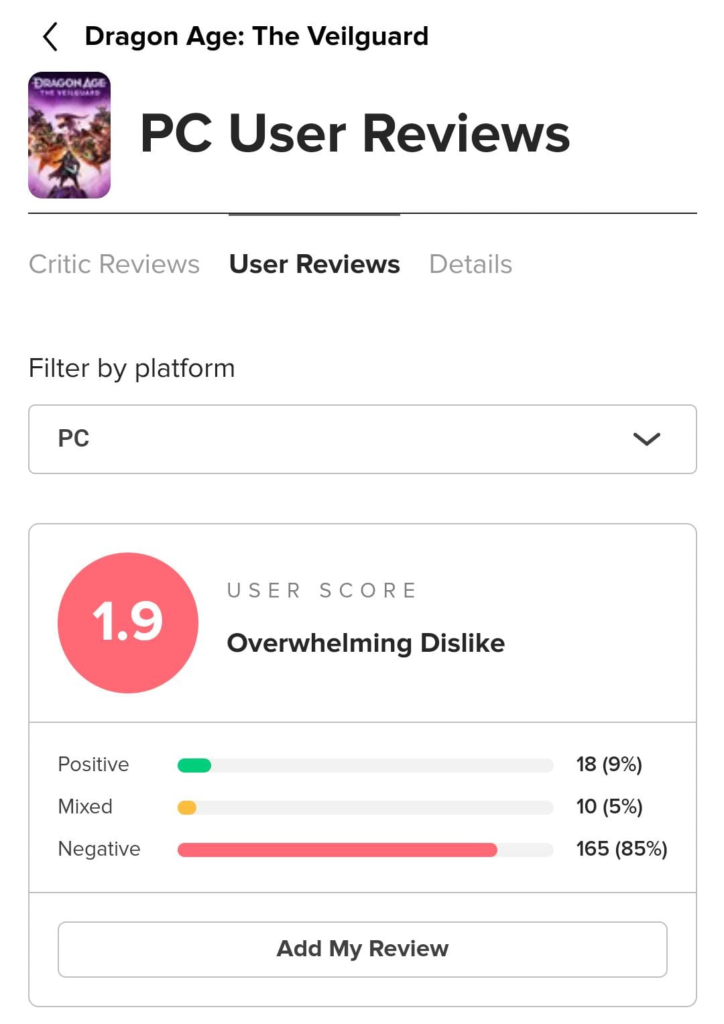
But at least Steam user reviews have always been transparent, right?
So we thought. At a glance, Dragon Age: The Veilguard sits at a good spot regarding Steam user reviews at 76% or “Mostly Positive” (at the time of writing this)
Unfortunately, it seems that in the case of The Veilguard, a breach in Steam’s rules has been found. Steam’s user review policy states that the developer of the game cannot remove any reviews from their game, unless they report offensive reviews containing, for example, hate speech, which Steam can decide to hide from appearing. Up to this point, I have not encountered a time when this was massively enforced.
It’s seems that the case for this game is different, and many users were leaving a negative review mentioning their disapproval with the inclusion of forced gender identity politics, writing that shames in-game characters for “incorrect” use of pronouns, and vise versa. In this case, it would seem, Steam has taken a stance in favor for political correctness as opposed to transparency.
Many users since then have claimed their review of Dragon Age: The Veilguard was hidden or removed altogether, and their Steam user has been banner from the game’s forums.


Has Steam addressed the controversy?
Unfortunately, it didn’t, although it was rather expected. Trying to get a statement of whether or not this is the case results in a rather generic reply claiming that “If there is a suspicion of review manipulation going on, we should use the report product feature on its store page, and Steam will investigate the possible manipulation”
Considering the lack of option for review manipulation in the feature, it is somehow doubtful that using that will be of use to get to the bottom of this.


Why is this important?
It seems like the market is being manipulated, the reviews are paid and not genuine, while user revies are being silenced, deleted and suppressed in order to sell a cat in the bag to as many unaware people as possible. It is time for us as a community to demand and uphold a higher standard in transparency, fairness and freedom of speech.
Doing this will result in better games, more transparent companies, and smarter consumers. Keep reading independent reviewers, supporting companies that respect their customers, and vote with your wallet against those that do not.

